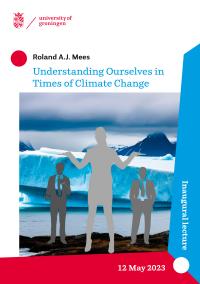Understanding Ourselves in Times of Climate Change
Synopsis
Understanding Ourselves in Times of Climate Change
When it comes to fighting climate change, any strategy to reach "net zero" by 2050 is credible only if it includes a commitment to reduce greenhouse gas emissions by 50 percent by 2030. Although the affluent countries have been aware of the climate challenge since 1992, they have waited too long to take sustainable action.
Our failure as people in the affluent countries to act sustainably is incompatible with how we understand ourselves as we shape visionary companies by relentlessly improving business processes, product quality and customer experience. Visionary companies deliver the best performance to their stakeholders. Why are we able to do all this, but ineffective in taking climate action?
As I see it, we apply different moral standards to future generations than we do to current generations. This hinders us from gaining the virtue of moral integrity. Only when we evaluate our roles as individuals, professionals in organisations, and members of humanity as against an integral set of normative standards can we be regarded as persons of integrity.
Despite these concerns, there are institutions that can overcome the motivational weaknesses of people in the affluent countries to take sustainable action and limit global warming to 1.5 degrees Celsius. For example, we must cherish the institutions that make up our constitutional democracies. We should support the EU Fit-for-55 ambition, and we should welcome the Dutch Civil Code, which offers opportunities to compel individuals and companies to take climate action.
Design and layout: LINE UP boek en media bv | Riëtte van Zwol, Mirjam Kroondijk
Cover photo: Canva/Tiemen Folkers
Author photo: ING
Published by University of Groningen Press
Broerstraat 4
9712 CP Groningen
https://ugp.rug.nl/
Downloads

Downloads
Published
Series
Categories
License

This work is licensed under a Creative Commons Attribution-NonCommercial-NoDerivatives 4.0 International License.



